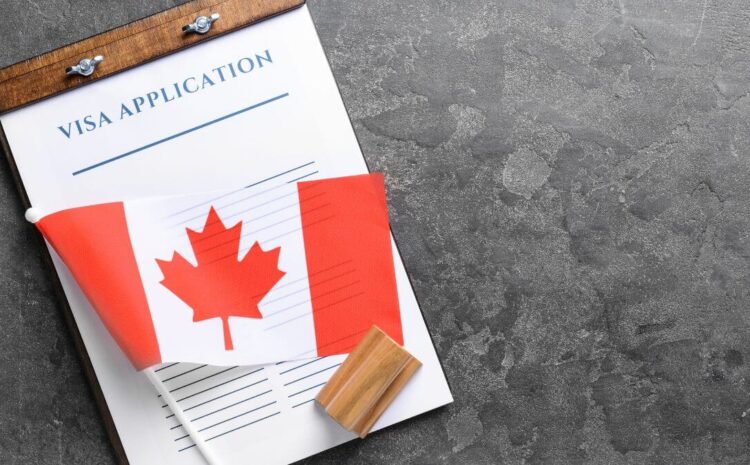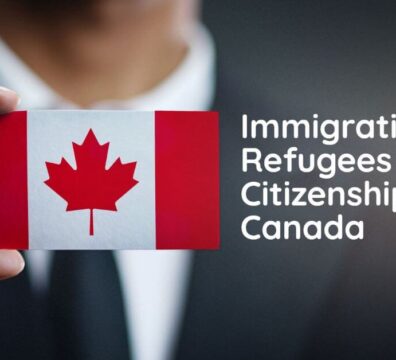Common Errors to Stay Away From When Filing a Canadian Visa Application
Typical Errors to Steer Clear of While Filing a Canada Visa Application
Do you intend to travel to Canada for business, education, or pleasure? Applying for a Canadian visa can be confusing, especially when there’s a chance you’ll make a mistake that can cause your application to be delayed or even rejected. It’s critical to understand the typical mistakes that candidates make in order to guarantee a seamless and successful application. The following are some mistakes to steer clear of while applying for a Canadian visa:
1. Forms that are Missing or Inaccurate
Inaccurate or incomplete application forms are among the most frequent blunders made by candidates. Whether you’re requesting a work permit, study permit, or visitor visa, you must carefully read and complete every element of the application. Before submitting your application, proofread your submissions to ensure there are no mistakes or errors.

2. Missing Documents
Not attaching the necessary supporting documentation with your application is another common mistake. The type of visa you’re asking for may need you to provide additional papers, such as a letter of invitation, trip itinerary, or evidence of financial assistance. Make sure you have all the required documentation by going over the checklist that Immigration, Refugees and Citizenship Canada (IRCC) has supplied.
3. Insufficient Proof of Funds
Providing evidence of sufficient funds to sustain oneself while in Canada is essential for a visa application to be approved. Nonetheless, a lot of applicants undervalue the need of offering persuasive and unambiguous proof of their financial capability. To demonstrate your financial stability, be sure to attach bank statements, job letters, or other pertinent documentation.
4. Lack of Travel History
A minimal or nonexistent travel history may cause visa authorities to take notice. Even while you won’t be automatically denied a Canadian visa if you don’t have any travel experience, you should nonetheless address any concerns by supplying more proof or explanations. In your application, emphasize any prior travel experiences you may have had or the reasons you haven’t traveled much.
5. Insufficient Justification for the Visit's Objective
Whether you are coming to Canada for employment, school, travel, or business, you must specify in your application why you are there. Delays or rejections may result from submitting a generic statement or not offering a thorough explanation. Give detailed information about your goals and plans for your time in Canada, including the events and activities you hope to partake in.

6. Neglecting to Disclose Previous Visa Denials
You are required to declare in your application any prior visa rejections, whether they were for Canada or another nation. If this isn’t done, it may be construed as deception and carry major repercussions, such being prohibited from entering Canada. Give a sincere justification for the prior rejection and show how things have improved for you since then.
7. Incorrect Visa Category
Making the incorrect visa category selection for the reason you wish to visit is a frequent error that might cause issues. Spend some time researching and figuring out which visa type best suits your particular situation. Make sure you apply for the correct kind of visa by consulting immigration advisors or legal professionals if you’re unclear.
8. Ignoring Additional Instructions
Applications for visas frequently include conditions or specific instructions that applicants must adhere to. If you don’t follow these guidelines, your application may be delayed or rejected. Be careful to follow any further instructions that the IRCC may send, and make sure you meet all the requirements.

9. Waiting Until the Last Minute
Last-minute rush job applications are a certain way to make mistakes and become stressed out. Well in advance of the dates of your intended journey, begin assembling the required paperwork and data. Send in your application as soon as possible to provide processing enough time and to handle any possible problems.
10. Not Seeking Professional Assistance When Needed
Even while you may apply for a Canadian visa on your own, working with a professional can make the process go more smoothly and successfully. Legal professionals or immigration consultants can offer important advice and assistance, particularly if you’re not familiar with the complexities of the Canadian immigration system.

Conclusion
Your chances of getting a Canadian visa approved might be considerably increased by avoiding these typical mistakes. Before submitting, give your application careful thought and evaluation; furthermore, don’t be afraid to ask for help if you need it. By paying close attention to details and making appropriate preparations, you may easily realize your goal of traveling to Canada.
People also ask about Common Errors to Stay Away From When Filing a Canadian Visa Application
Q1. Which typical errors should you steer clear of while entering personal information?
Make sure you enter all of your personal information correctly, including your name, date of birth, and address. Verify again for any mistakes or discrepancies.
Q2. How crucial is it to fill out the application with accurate information?
It is essential to give correct and true information. Giving incorrect information may lead to the denial of a visa and other repercussions for immigration in the future.
Q3. Which files should I attach to my application?
dd all of the needed files that the application guide specifies. Incomplete or missing required documentation may cause processing to be delayed or denied.
Q4. What should I do if there are gaps in my work or school history?
If there are any gaps in your work or school background, please explain clearly. To prevent triggering suspicions, offer justifications or supporting documentation.
Q5. Are translations into languages other than English or French required?
Yes, for every document that isn't in English or French, give certified translations. If you don't, your application may be delayed or rejected.
Q6. If, after submitting my application, I discover I made a mistake, what should I do?
Make quick contact with the visa office processing your application if you find any errors. They could offer guidance on fixing the mistake.
Q7. How crucial is it to adhere to the precise guidelines provided in the application guide?
It is imperative that you read the application guide thoroughly and adhere to all of the requirements. If you don't, your application may be delayed or rejected.
Q8. Should I bolster my application with a ton of unnecessary or superfluous documentation?
Provide just the pertinent and essential supporting material for your application. Overwhelming or unnecessary paperwork might confuse the immigration officer and hurt your chances of getting approved.
Q9. How should I respond to an application form question that leaves me unclear?
Before submitting your application, check the official website for clarification on any questions you may have or get in touch with the visa office that will be handling it.
Q10.How can I make sure that before submitting my application, everything is complete?
Examine your application carefully to make sure all the necessary documents are included and that all the parts are filled out correctly. If necessary, think about getting advice from a professional immigration counselor.





